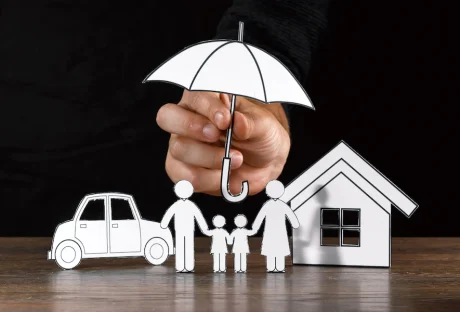When you think about life insurance, you think about the financial security it will provide your family when you die. What most people don’t know is that life insurances do not cover every type of death.
Term life insurance is the most common and affordable type of life insurance policy. Term life insurances specific number of years before the policy expires.
You then have the option of renewing it. If you die during the term, however, your insurance will provide death benefits to your beneficiary.
You should know that life insurance policies have some coverage exceptions. Particularly when it comes to the type of death.
This is an important consideration as you purchase a life insurance policy, or if you are continuing to manage one.
Deaths Not Covered by Term Life Insurance
There are certain reasons why your term life insurance won’t payout upon your death.
These coverage exceptions can be a hassle for beneficiaries and loved ones. Especially those who rely on your life insurance to cover medical, funeral, or burial expenses. Deaths which might not have coverage through insurance.
Fraudulent Deaths
If you commit life insurance fraud or someone lies about the cause of death, your life insurance company may refuse to pay death benefits.
It is important, to be honest, and forthcoming when applying for life insurance. Especially if you have any medical conditions or dangerous conditions you are in.
Dangerous Hobby-Related Deaths
If your lifestyle is dangerous or you have dangerous hobbies, these activities may affect your life insurance. For example, certain pilots must opt-in for special aviation coverage to get life insurance.
If someone dies in a flying accident, beneficiaries will not get death benefits.
If you regularly engage in dangerous hobbies like– bungee jumping, scuba diving, or free-climbing – you need to inform your insurance agent or carrier upfront. You may need to list these hobbies or opt for additional coverage.
You may also have a higher premium. Be honest, even if it does mean a higher premium. As noted previously, if you lie on your application or about the cause of death, your beneficiaries are the ones who will suffer.
Murder
If one of your beneficiaries murders you with the intent of collecting your insurance money, they won’t prevail.
The Slayer statute prohibits death benefits from being paid out to anyone who murders or is tied to the murder of the insured. If this happens, death benefits will be distributed to your contingent beneficiaries or your estate.
Suicide
Most life insurance policies have a “suicide clause”. This clause states that if you commit suicide during the first two years the policy is active, then the policy will not cover the death or pay death benefits.
This is designed to prevent individuals from obtaining a policy and then immediately committing suicide.
If the death is possibly suicide, such as a drug overdose, then the insurance company may deny coverage.
They will have to prove that the insured committed suicide (the death was deliberate) and not the result of an accident.
Make Sure You Understand Your Life Insurance Policy
As you can see, there are a variety of situations that could result in your life insurance refusing to pay death benefits to your loved ones.
You should talk to you insurance agent to find out specifically what is and is not covered by your term life insurance policy.
Make sure your insurance agent is up to date on any medical conditions you have or any changes in your hobbies or occupation.
Doing so can help prevent your loved ones from experiencing the unfortunate scenario that is a life insurance coverage denial.
Common Misunderstandings About Life Insurance Exclusions
It’s easy to assume that your loved ones are fully covered once you have a life insurance.
Are they?
But as you’ve seen, not all deaths are covered by term life insurance policies. It’s crucial to understand these exclusions clearly.
There are often misconceptions, like believing every type of accident or unforeseen circumstance will be covered, which isn’t always the case. Knowing the details is key to avoiding unpleasant surprises later.
Reviewing Your Life Insurance Regularly
Your life circumstances can change, and so should your life insurance coverage. For instance, you might pick up a new hobby that could impact your coverage.
It is a good habit to regularly review your policy with your insurance agent. This ensures that any updates on your health, hobbies, or job are recorded.
Doing this can also give you peace of mind, knowing that your policy remains relevant to your current situation.
Final Note: Clarity is Key
Understanding what your term life insurance covers—and what it doesn’t—is vital. No one wants their loved ones to face unnecessary hurdles during difficult times.
Take the time to sit down with your insurance agent. Ask questions, review potential exclusions, and make sure everything is transparent.
A few efforts today can make all the difference for your beneficiaries tomorrow!
Read Also:
- A Detailed Guide to Cashless Car Insurance Policy
- Insurance- Need of the time
- How Private Hire Insurance Takes You Out from Problems?
- Self-employed Health Insurance: Best Types for Every Freelancer























